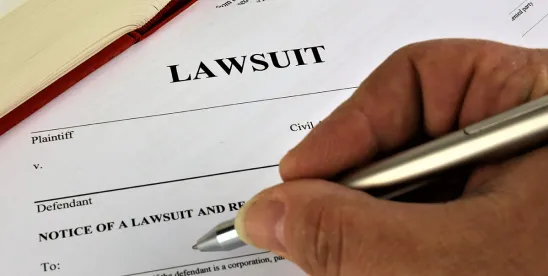As discussed in a previous blog, prior to an executor making distributions from an estate he/she must produce an accounting which the beneficiaries of an estate are entitled to review. Provided that the accounting is acceptable to the beneficiaries, distributions can be made after the beneficiaries sign refunding bonds and releases, however, should there arise a dispute that cannot be resolved with regard to the accounting a beneficiary might decide to file suit. This blog shall discuss this general process.
In general, either the estate or the beneficiary of an estate can file suit during which the executor of the estate must render a formal accounting. Such a lawsuit would be venued in the county where the decedent passed away. During this lawsuit, the executor would file an accounting with the court which would list all assets of the estate, as well as all expenditures and liabilities of the estate. Exhibits to the executor’s accounting would include all relevant account statements, copies of any receipts with regard to expenses that were paid, as well as any other related documents which evidence expenses of the estate and payments by the estate concerning same. These accountings are typically presented in spreadsheet format with the relevant backup being referenced and attached thereto. Once the executor’s accounting is filed with the court, the county surrogate would review the accounting for accuracy and completeness. Moreover, the party contesting the accounting would be able to file exceptions to the accounting. What this means is that the party would state precisely what their objections are to certain expenses or other sections within the accounting. In response, the executor would have an opportunity to provide any necessary clarification in order to respond to such exceptions, and further, may provide additional receipts and documentation in order to address any such exceptions.
After the production of the accounting, and after exceptions are filed by the contesting party, and further, after the executor has responded to same, the matter would then be in a position for a trial to address any remaining disputed exceptions. At times, the court may permit depositions or other written discovery prior to a trial on the merits. Any exceptions that are not resolved during discovery would be carried forward towards trial on the merits. During such a trial, the court would review the accounting, any exceptions to same, and render findings of fact and law as to the validity of any such exceptions. The court’s decision would ultimately lead to the finalization of the accounting which might incorporate all, some, or none of the exceptions filed by the contesting party. Once this procedure is completed the estate would then be in a position to finalize the accounting and to commence with distributions.
There is no doubt that this is a complicated legal process and any party seeking to file an exceptions to an accounting should always be concerned whether the potential gain might be outweighed by the counsel fees and costs it would incur to proceed with such an action. Nonetheless, at times there may be no alternative but to file suit should the executor be guilty of misconduct which has wasted assets of the estate. As such, in deciding whether to pursue any such claim it is strongly suggested that a party consult with competent counsel prior to filing suit.



 />i
/>i

